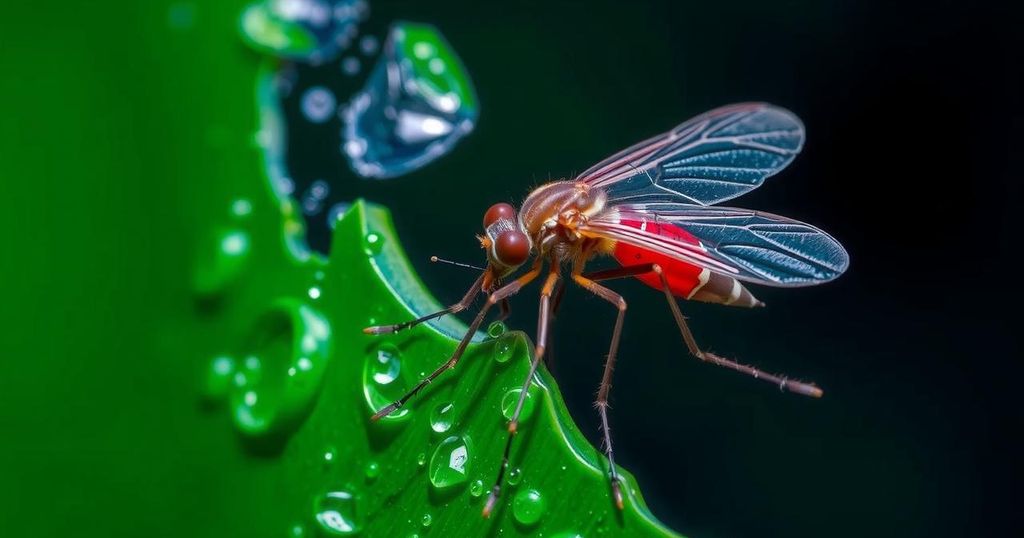Research Indicates Climate Change Drives Significant Rise in Dengue Cases
A recent study reveals that climate change accounts for nearly 20% of dengue cases globally. As temperatures rise, the geographic spread of the disease increases, with alarming projections for the future. Innovative measures, such as breeding mosquitoes with Wolbachia bacteria, show potential in mitigating dengue outbreaks, emphasizing the importance of addressing climate change for public health.
Research has identified that climate change contributes to nearly 20% of the rising dengue cases globally, according to findings presented by American researchers. The study underscores the direct influence of elevated temperatures on the spread of the viral disease, which is transmitted through infected mosquitoes. As temperatures continue to rise, regions historically immune to dengue face increased risks, necessitating urgent attention to climate factors impacting public health. As climate change triggers extreme weather patterns such as hurricanes and droughts, its effects on human health become a growing concern. Erin Mordecai, a leading infectious disease ecologist at Stanford University, highlights dengue’s sensitivity to climate, emphasizing that historically, it has affected tropical and subtropical areas. However, global warming is facilitating the encroachment of dengue-carrying mosquitoes into new regions. The study analyzed data from 21 countries across Asia and the Americas, concluding that approximately 19% of current dengue cases are attributable to climate change. Ideal conditions for mosquito proliferation are found at temperatures between 20 to 29 degrees Celsius (68 to 84 degrees Fahrenheit). As regions within Peru, Mexico, Bolivia, and Brazil warm, projected increases in dengue cases may reach up to 200% in the next 25 years. This situation affects an estimated 257 million individuals projected to inhabit areas impacted by climate-induced dengue risk. The World Health Organization has reported over 12.7 million dengue cases globally this year, with actual numbers possibly nearing 100 million due to significant under-reporting. The alarming statistics and trends elucidate the need to consider climate change as a paramount public health concern. In efforts to combat the increasing threat of dengue, some researchers are investigating the potential of genetically breeding mosquitoes infused with Wolbachia, a bacterium that inhibits the transmission of dengue. A successful trial in Niteroi, Brazil, indicated a significant reduction—over 90%—in dengue cases following the introduction of Wolbachia mosquitoes amid Brazil’s extreme dengue outbreak. This initiative demonstrates valuable potential for sustainably mitigating dengue outbreaks. The collaborative efforts between researchers and the Brazilian government to establish a production facility for Wolbachia-infected mosquitoes aim to offer long-term community protection against these rising health threats.
The relationship between climate change and infectious diseases is an emerging field of study. Researchers are increasingly recognizing how global warming influences health outcomes, notably in vector-borne diseases like dengue. This is particularly relevant as climate fluctuations have been shown to alter mosquito habitats and breeding behaviors, leading to expanded geographical ranges for diseases traditionally confined to tropical regions. The assessment of public health implications is crucial for developing preventative measures against the rising threat of dengue amid climate change.
This comprehensive study highlights the profound connection between climate change and the increasing incidence of dengue worldwide. The insights regarding the ideal temperature range for mosquito breeding underline the urgency of addressing climate-related health issues. The promising results from the Wolbachia mosquito project offer hope for effective dengue control, reiterating the necessity for global efforts to alleviate climate change impacts on public health.
Original Source: www.barrons.com




Post Comment